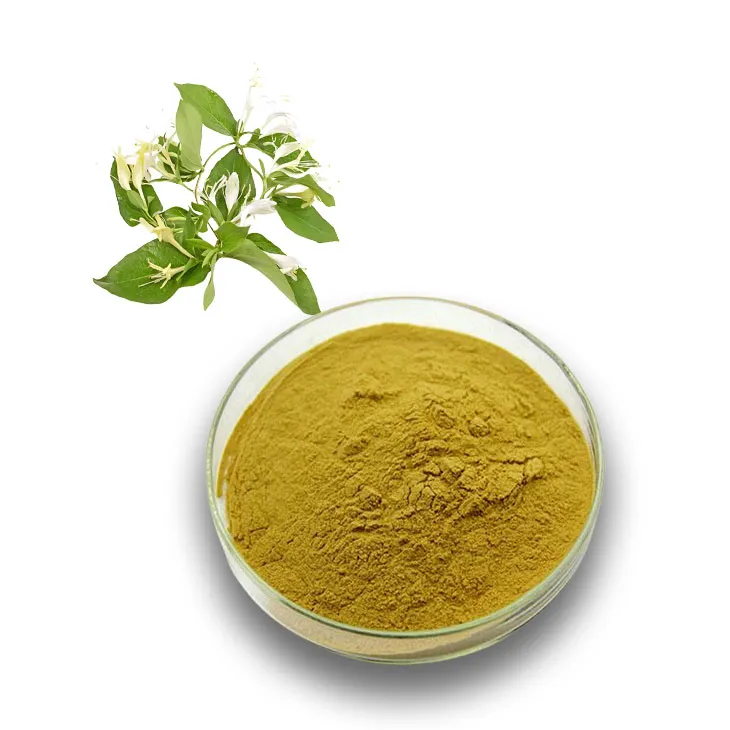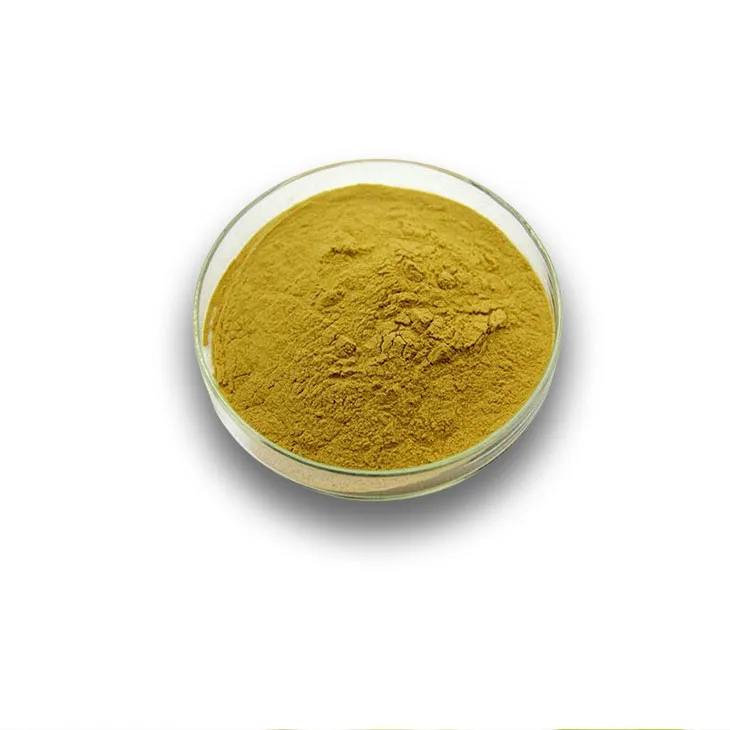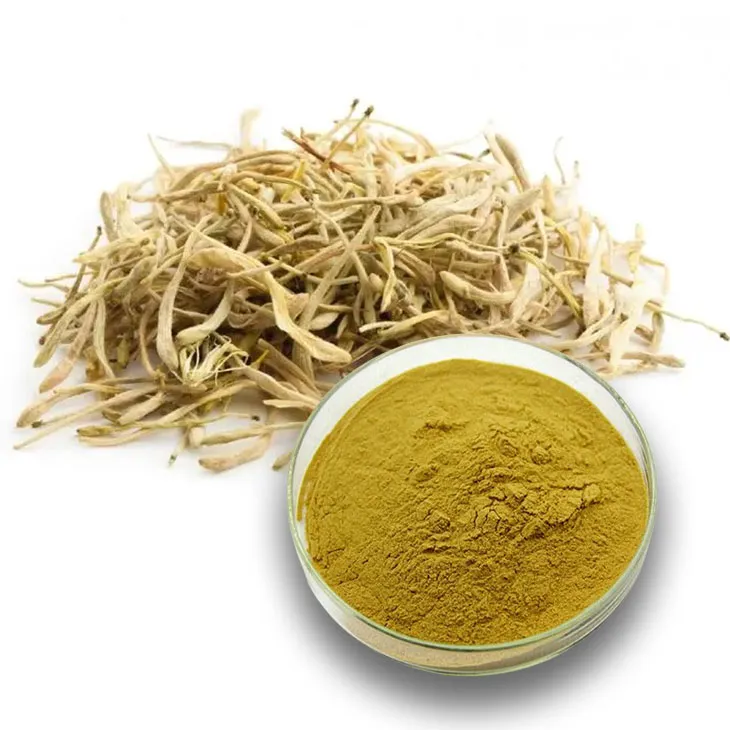- 0086-571-85302990
- sales@greenskybio.com
China Honeysuckle Pollen Factory.
2024-11-26

Introduction to Honeysuckle Pollen
Honeysuckle Pollen is a natural and precious resource that has drawn significant attention in recent years. It is derived from the honeysuckle plant, which is well - known for its various medicinal properties. The pollen contains a rich array of nutrients and bioactive substances, making it a valuable ingredient in different fields.

The Importance of Honeysuckle Pollen Factories
Honeysuckle pollen factories play a crucial role in the development of the herbal industry. They are the centers where the raw honeysuckle pollen is processed and transformed into various products. These factories not only contribute to the local economy but also have a far - reaching impact on the global market for herbal products.

Research and Development in Honeysuckle Pollen Factories
1. Deep Exploration of Chemical Composition
- Scientists in these factories are dedicated to studying the chemical composition of honeysuckle pollen. By using advanced analytical techniques, they are able to identify and quantify various components present in the pollen. This in - depth understanding of the chemical makeup is the foundation for further research and product development.
- For example, they may discover new types of flavonoids, polysaccharides, or other bioactive compounds. These compounds could potentially have antioxidant, anti - inflammatory, or immune - boosting properties, which are highly desirable in the fields of medicine, cosmetics, and food.
- The R & D efforts in honeysuckle pollen factories are focused on creating new and innovative products. Based on the knowledge of the pollen's chemical composition, they can develop new formulations for dietary supplements, health - promoting teas, or even high - end cosmetics.
- One of the innovative directions is the development of targeted health products. For instance, if certain compounds in honeysuckle pollen are found to be beneficial for heart health, factories can develop specialized supplements aimed at improving cardiovascular function.
- The R & D work in Chinese honeysuckle pollen factories also has a positive impact on the international development of the honeysuckle - related field. As China is a major producer of honeysuckle pollen, the scientific research and product innovation here can set trends and standards globally.
- International cooperation in research can also be promoted. For example, Chinese factories may collaborate with foreign research institutions to further explore the potential applications of honeysuckle pollen, which can enhance the international recognition and competitiveness of Chinese honeysuckle pollen products.

Environment - Friendly Production Process
1. Waste Treatment
- During the extraction process of honeysuckle pollen, waste is inevitably generated. However, these factories have adopted effective waste treatment measures. For example, organic waste can be composted and used as fertilizer, which not only reduces environmental pollution but also realizes the recycling of resources.
- Some by - products from the extraction process may also contain certain valuable substances. Factories are exploring ways to further extract and utilize these substances, rather than simply discarding them as waste.
- In addition to waste treatment, energy conservation is also an important aspect of the environmentally friendly production process. Factories are constantly upgrading their production equipment to improve energy efficiency.
- For example, they may use more energy - efficient extraction machines or optimize the production process to reduce energy consumption. This not only helps to reduce production costs but also contributes to environmental protection.

Impact on International Trade
1. Meeting Global Demand
- With the increasing global demand for natural and herbal products, honeysuckle pollen has great market potential. Consumers around the world are becoming more interested in natural remedies and health - promoting products, and honeysuckle pollen fits well into this trend.
- China's honeysuckle pollen factories are in a good position to meet this global demand. They can produce high - quality honeysuckle pollen products in large quantities, which can be supplied to different markets around the world.
- To enter the international market successfully, Chinese honeysuckle pollen factories must comply with international standards and regulations. This includes product quality standards, safety regulations, and labeling requirements.
- Factories are constantly improving their production processes and quality control systems to ensure that their products meet international standards. For example, they may adopt international recognized quality management systems such as ISO standards.
- By meeting international standards and having high - quality products, China's honeysuckle pollen factories can effectively promote the export of their products. The unique properties of honeysuckle pollen, combined with China's large - scale production capacity, can make Chinese honeysuckle pollen products very competitive in the international market.
- Moreover, the promotion of honeysuckle pollen export can also enhance China's influence in the international herbal product market. It can establish China as a reliable source of high - quality honeysuckle pollen products, which is beneficial for long - term business development.
Challenges and Future Prospects
1. Challenges
- One of the main challenges faced by honeysuckle pollen factories is the competition from other herbal products. In the global market, there are many alternative herbal products available, and honeysuckle pollen needs to continuously prove its unique value to maintain its market share.
- Quality control is also a challenge. Since honeysuckle pollen is a natural product, its quality may be affected by factors such as the origin of raw materials, harvesting time, and processing methods. Factories need to establish strict quality control systems to ensure the consistency and high quality of their products.
- Despite the challenges, the future prospects of honeysuckle pollen factories are still promising. With the continuous progress of research and development, more potential applications of honeysuckle pollen are likely to be discovered. This will open up new markets and product categories for the factories.
- The growing global awareness of natural health products also provides a favorable environment for the development of honeysuckle pollen factories. As consumers become more health - conscious, they are more likely to choose natural products like honeysuckle pollen, which can drive the growth of the industry.
FAQ:
What are the potential applications of honeysuckle pollen?
Honeysuckle pollen has a wide range of potential applications. It may be used in the fields of health products, pharmaceuticals, and cosmetics. Its bioactive compounds could have beneficial effects on human health, such as antioxidant, anti - inflammatory, and antibacterial properties.
How does the China Honeysuckle Pollen Factory promote product innovation?
The factory promotes product innovation through research and development. Scientists study the chemical composition of honeysuckle pollen deeply to discover more bioactive compounds. This knowledge can be used to develop new products with higher value, such as more effective health supplements or specialized skincare products.
What makes the production process in the honeysuckle pollen factory environmentally friendly?
The production process is environmentally friendly because waste generated during the extraction process is properly treated and recycled as much as possible. This reduces environmental pollution and conserves resources, showing the factory's commitment to sustainable development.
How does China's honeysuckle pollen factory impact international trade?
As the global demand for natural and herbal products rises, China's high - quality honeysuckle pollen has great potential in international markets. These factories strive to meet international standards and regulations, which helps promote the export of honeysuckle pollen products, thus having a positive impact on international trade.
What are the benefits of the R & D work in the honeysuckle pollen factory?
The R & D work benefits both the factory's product innovation and the overall development of the honeysuckle - related field in the international arena. It helps to discover new bioactive compounds, which can lead to the creation of novel products and also enhance the understanding and utilization of honeysuckle pollen globally.
Related literature
- The Chemical Composition and Bioactivity of Honeysuckle Pollen"
- "Sustainable Production Practices in Honeysuckle Pollen Factories"
- "Honeysuckle Pollen: A Promising Resource for International Trade"
- ▶ Hesperidin
- ▶ citrus bioflavonoids
- ▶ plant extract
- ▶ lycopene
- ▶ Diosmin
- ▶ Grape seed extract
- ▶ Sea buckthorn Juice Powder
- ▶ Beetroot powder
- ▶ Hops Extract
- ▶ Artichoke Extract
- ▶ Reishi mushroom extract
- ▶ Astaxanthin
- ▶ Green Tea Extract
- ▶ Curcumin Extract
- ▶ Horse Chestnut Extract
- ▶ Other Problems
- ▶ Boswellia Serrata Extract
- ▶ Resveratrol Extract
- ▶ Marigold Extract
- ▶ Grape Leaf Extract
- ▶ blog3
- ▶ blog4
-
Chinese Withania somnifera Extract Factory.
2024-11-26
-
中国松树皮提取物粉粉末供应商
2024-11-26
-
High - quality Marigold Extract Products.
2024-11-26
-
100% Pure Natural Mango - Flavored Powder.
2024-11-26
-
Saponin Extract
2024-11-26
-
Grapefruit Seed Extract Powder
2024-11-26
-
Yam Extract
2024-11-26
-
Sophora Japonica Flower Extract
2024-11-26
-
Curcumin Extract
2024-11-26
-
Oyster Mushroom Extract Powder
2024-11-26
-
Natural grape seed extract
2024-11-26
-
Sea buckthorn Juice Powder
2024-11-26
-
Yellow Pine Extract
2024-11-26
-
Senna Leaf Extract
2024-11-26





















